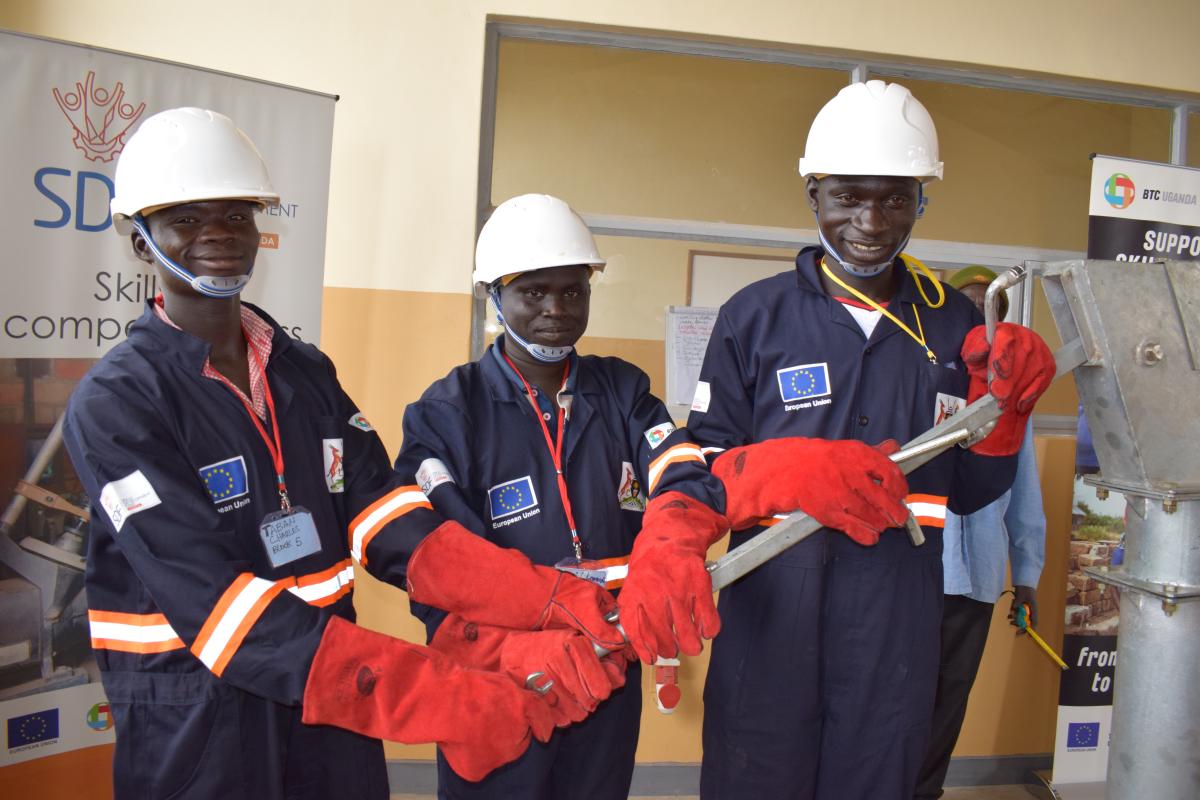Instant skills training to maintain water and Sanitation installation in refugee settlement
As Uganda maintains open borders to South Sudanese refugees,
unprecedented mass influx continues to place enormous strain on the country’s
public services and local infrastructure.
Six (6) months after the South Sudan civil war broke out in
July 2016, more than quarter of a million refugees had filled a formerly
forested area, making Bidi-Bidi the world’s 2nd largest refugee
settlement in the world.
This kind of migration requires enormous logistical
operation towards the basic services such as access to safe, reliable and
affordable drinking water. Water trucking which is one support system in
meeting this need remains expensive thus creation of other sustainable means.
Hand water pumps commonly known as bore holes, are a source
of clean water that is put in place to serve a growing number of the refugees
and host community with daily water supply. Yet with low maintenance and
repairs, the rate at which the water is pumped keeps diminishing and causing
the pumps to break down.
“Two months ago, the bore hole of our village broke down
and it took more than one day to repair it. By the time water was delivered by
trucks, sanitation of the village was becoming unbearable. I remember watching
the men repairing the borehole hoping to learn from them so that I can help the
next time, but it was difficult. Now I have the skills to repair the bore hole,
I will rescue the community”, says Fraser Lomeling from Bidi-Bidi.
The
Refugee Welfare Council (RWC) leader of village 6 in zone 2 noticed Fraser’s
enthusiasm and recommended him for the “hand pump mechanics” pilot instant
skills training organised by BTC. Fraser says in excitement “This is the best
training. With the skills I have gained, I will maintain the bore hole in my
village and there will be immediate response in case of breakdown”
With the instant skills training
voucher scheme, BTC aims to improve quality of labour force and support the
self-reliance of refugees and host communities by providing them with the
skills to foresee in the delivery of basic services.
Paulo and Fraser are
among the 15 youth that underwent the pilot instant skills training in hand
pump mechanics at Lokopio Vocational Institute in Bidi-Bidi refugee settlement.
The 10-day training organised by the Belgian Development Agency (BTC) will
empower these youths to maintain and repair the hand water pumps in their
respective zones of residence.
This 4-year Support to Skilling Uganda (SSU)
project funded by European Union Trust Fund focuses on increasing access to
quality labour market relevant skills and entrepreneurship as part of the
Support Program for Refugees and host communities in the Northern Uganda
(SPRS-NU).
Like several youths
in the camps, Fraser is a head of a household comprised of 5 younger brothers. While
Paulo is married with one child but takes care of an extended family; responsibilities
such as these without sustainable income leave livelihoods on the brink.
With the on-going civil war in South Sudan and an average
arrival of 2,000 refugees daily, the number of unemployed youth such as Fraser and
Paulo is evidently increasing.
As a high school
drop-out Fraser, plans to use the hand pump mechanic skills gained to earn
income to take care of his siblings and also upgrade his studies in mechanics
when he returns to South Sudan. Paulo finished his A-level in 2013 and plans to
enroll for a diploma in engineering.
Given
the severity of the South Sudan humanitarian crisis, the EUTF’s SPRS-NU
interventions such as instant, qualitative, tailor made and innovative skills
development responding to identified skills gap, will improve livelihoods
through income generation of over 4,000 youth, women and girls within the
refugee and host community.
Latest news from this project
No news

